Army vets Low T risks and benefits from Testosterone therapy
Low testosterone (Low T) is a common condition that affects men, and army veterans are at an increased risk for this condition. Army Vets Low T risks can cause a variety of symptoms, including fatigue, decreased libido, and decreased muscle mass. Testosterone replacement therapy (TRT) is a treatment option for men with Low T, and it has been shown to be effective in improving symptoms and overall quality of life. In this blog, we will explore why army veterans are at risk for Low T and how TRT can help improve their health and wellbeing.Why Army Vets Low T Risks lead to Testosterone Therapy consideration
Army veterans are at an increased risk for Low T due to a variety of factors. One of the main reasons is exposure to stress and trauma during combat. The stress and trauma of combat can affect the hypothalamic-pituitary-gonadal (HPG) axis, which regulates the production of testosterone in the body. When the HPG axis is disrupted, it can lead to decreased testosterone levels.In addition to stress and trauma, other factors that can contribute to Low T in army veterans include:- Age: As men age, their testosterone levels naturally decrease peaking at 19 and declining 1-2% in the best of conditions. Army veterans who are older may have accelerated their decline through stressful service.
- Injuries: Army veterans who have suffered injuries, particularly to the testicles or TBI (traumatic brain injury), may experience decreased testosterone production.
- Medications: Certain medications, such as opioids and steroids, can decrease testosterone production.
- Obesity: Obesity is a risk factor for Low T, and many army veterans struggle with weight gain after leaving the military.
- Sleep apnea: Sleep apnea is common among army veterans, and it has been linked to decreased testosterone production.
Symptoms of Low T in Army Veterans
The symptoms of Low T in army veterans can vary depending on the severity of the condition. Some common Low T symptoms include that patients on TRT programs see improvements in:- Fatigue: Low T can cause fatigue and a lack of energy.
- Decreased libido: Army veterans with Low T may experience a decrease in sex drive.
- Decreased muscle mass: Low T can cause a loss of muscle mass and strength.
- Weight gain: Low T can cause weight gain, particularly around the midsection.
- Mood changes: Low T can cause mood swings, irritability, and depression.
- Erectile dysfunction: Low T can contribute to erectile dysfunction.
Benefits of Testosterone Replacement Therapy
TRT can be an effective treatment option for army veterans with Low T. Some of the potential benefits of TRT include:- Increased energy: TRT can help boost energy levels, reducing fatigue and improving overall quality of life.
- Improved libido: TRT can help increase sex drive and improve sexual function.
- Increased muscle mass: TRT can help increase muscle mass and strength.
- Weight loss: TRT can help promote weight loss, particularly around the midsection.
- Improved mood: TRT can help improve mood and reduce symptoms of depression and irritability.
- Improved bone density: TRT can help increase bone density, reducing the risk of osteoporosis.
Risks and Side Effects of Testosterone Replacement Therapy
While TRT can be an effective treatment option, it is not without risks and side effects. Some potential risks and side effects include:- Increased risk of blood clots: TRT can increase the risk of blood clots, which can be dangerous. Make sure your provider tests for and reviews Hematocrit levels.
- Acne: TRT can cause acne and other skin reactions.
- Breast tissue growth: TRT can cause breast tissue to grow in some men if Estradiol levels and the ratio of Total Testosterone : Estradiol is left un checked and not managed.
- Sleep apnea: TRT can worsen sleep apnea in some men
Army vets Low T risks and benefits from Testosterone therapy
Hormone Therapeutics March 21st, 2023
Posted In: Low T Info, Testosterone Therapy
Tags: benefits of testosterone, benefits to your body, depression, erectile dysfunction, fatigue, hormone replacement therapy, low t, testosterone levels, testosterone therapy
Fight Depression with Hormone Replacement

Did you know you can fight depression by supplementing testosterone? In January 2003, a study published in the American Journal of Psychiatry revealed that testosterone replacement therapy can effectively fight depression. These men had been found to have low testosterone levels, aside from depression. But these two health issues have been found to have a common correlation. The research study monitored and analyzed the responses of the participants who took TRT to a series of psychological tests.
What they found was that the subjects experienced higher moods, a reduction in suicidal thoughts and felt less guilt and anxiety. Such results indicate that testosterone hormone can influence both the body and mind.
Both men and women require testosterone to address different bodily functions. Studies have shown that androgens such as testosterone provide a positive effect on well-being.
Our hormones plays a major role in regulating our emotions. When there is an imbalance or deficiency of a specific hormone, it can cause symptoms of anxiety and depression. Such effect isn’t only limited to a deficiency of testosterone. Studies have also shown that an excess or insufficiency of thyroid hormone could result to depression. Further, it has observed that women’s anxiety is significantly reduced when given bio-identical progesterone cream before sleep.
Are you suffering from depression? Your depression could be due to a hormone deficiency. It is necessary to keep a healthy, balanced hormone level for emotional stability. To add, Hormone Therapeutics offers pharmaceutical nutrients that can help fight depression and anxiety symptoms. Our program concentrates on optimizing brain chemistry, balancing hormone and reducing stress.
The Use of Sleeping Pills to Fight Depression
A number of sleeping pills are benzodiazapines or ‘sedative hypnotic’ drugs that may also be used for the treatment of stress and anxiety. But such drug is linked with a number of risks. Most of these sleeping pills are highly addictive and not advised for long-term use. The side effects include drowsiness, dizziness and impaired coordination. Since they act on the brain chemistry, nervousness, memory impairment, hallucination, confusion and aggressiveness or extreme irritability could also be observed.
Fight Depression with Hormone Replacement
Saleamp Design February 7th, 2017
Posted In: Hormone Replacement
Tags: androgens, anxiety, benzodiazapines, depression, fight depression, hormone deficiency, hormone replacement, progesterone cream, sedative hypnotic drugs, sleeping pills, stress, testosterone, Testosterone replacement therapy, thyroid hormone, TRT
Wondering About Low T? Here are the Low Testosterone Symptoms You Should Know
Do you keep noticing commercials about Low Testosterone symptoms, or Low T, and wonder what exactly they are talking about? Are you wondering if you have Low T? We have yet to meet anyone nearing 40, or older, who sees these commercials and can consistently say I never feel like that with the same pep I did when I was younger.
For healthy men, testosterone peaks at age 19 and goes down about 1-2% a year for the rest of your life. We are living 64% longer today than we were just one century ago and different parts of our body age faster than other. An unbalanced or depleted endocrine system has so many men are suffering from the Low Testosterone symptoms. . . but they don’t have to suffer from what so many people just write-off as normal aging.
What is Testosterone?

Testosterone is a naturally occurring and very potent hormone produced in large amounts by all males (and in much smaller amounts in females). Production begins in the womb and then gradually increases for weeks from birth.
Initially, it fortifies the development of male genitalia, then gradually affects every vital physiological system (muscular, circulatory, skeletal, reproductive, etc.)
After reaching physical maturity, testosterone plays a major role in the healthy development of male sexuality. Testosterone levels drastically surge during the onset of puberty. Levels peak at 19, then level o and begin to drop by the mid-30s, by about 1% per year.
What are the Low Testosterone Symptoms?
Except in cases of hypogonadism (medically low testosterone) when it occurs much earlier, most men begin to feel many of the symptoms of low testosterone by their 40s. It’s one reason why our physical and mental capabilities begin to diminish as we age, and it may even contribute to the following life and relationship altering conditions of Low T:
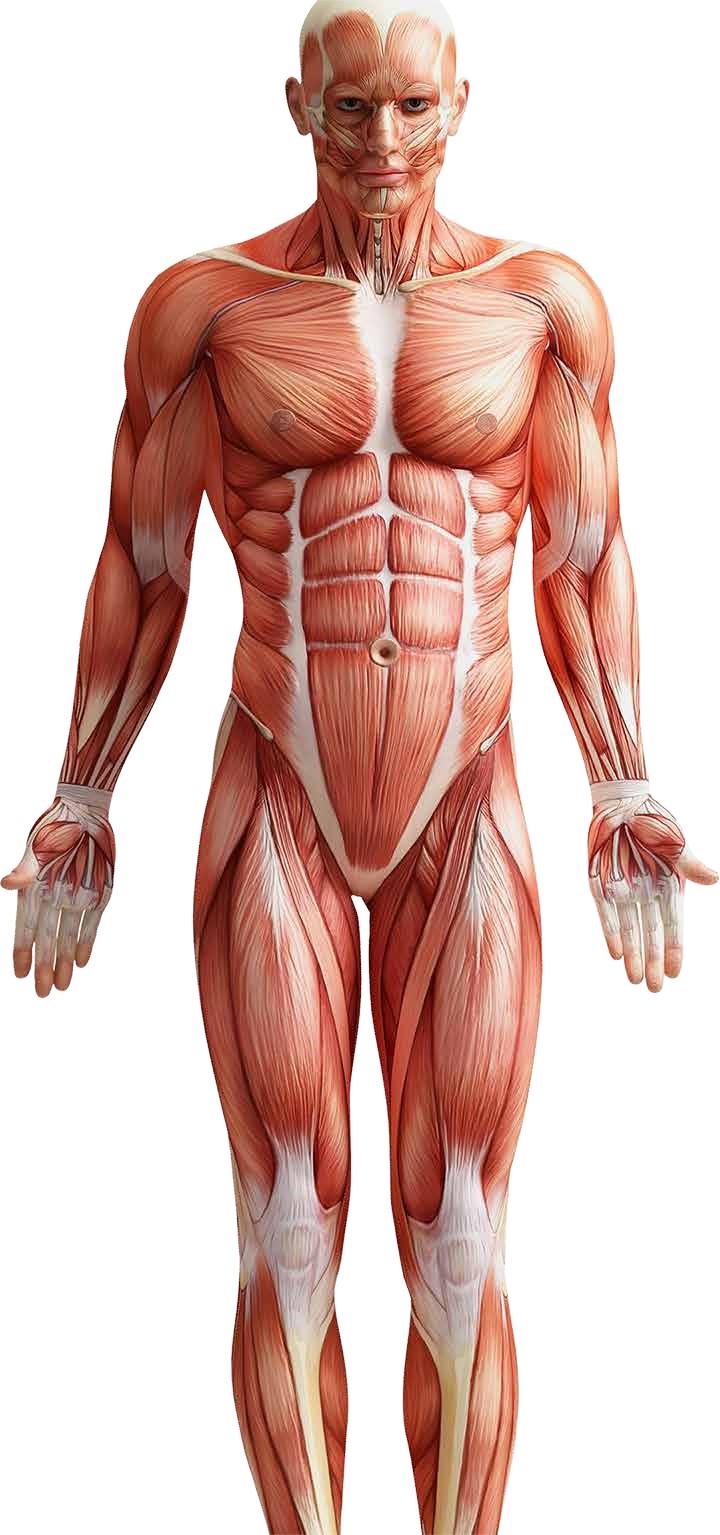
- Loss of Muscular Mass and Strength
- Reduction in Bone Density
- Loss of Skin Elasticity
- Hair Loss/Male Pattern
- Baldness
- Erectile Dysfunction
- Depression
- Fatigue
- Loss of Concentration or Memory
- Weight Gain
- Gynecomastia
- Hot Flashes
- Lower Sex Drive
- Urinary Problems
- Sleep Problems
- Irritability
- Night Sweats
- Hypogonadism
- Adrenal Fatigue
- Thyroid Health
There is a syndrome called Irritable Male Syndrome, or IMS, that’s caused by low testosterone. It is not just having a low libido. This syndrome includes emotional withdrawal, lack of motivation, aggression, personality changes, and anxiety. Irritable Man Syndrome can also present in self-destructive activities including gambling, alcoholism and workaholism.
Sound like you? Low testosterone affects over 13.8 million men in the US. Many of these men are in their 30s and even 20s due to hypogonadism.
Low T effects go beyond sex drive and mood. Testosterone deficiency increases the risk for cardiovascular disease, type 2 diabetes, and bone fractures. Low testosterone increases mortality risk.
800 men were followed for 50 years and the men with the lowest testosterone levels had a 33% greater chance of death, from all causes, than the group with the highest testosterone levels. Another study showed that men with low testosterone had 88% higher mortality levels than men with normal testosterone.
Hormone Therapeutics aims to help people looking to improve and optimize their health through natural means or through the guidance of our physicians.
Don’t miss out our free weekly tips and news on Low T, hormone balancing, healthy living, nutrition and a lot more.
Want more? 
Sign up today and Get our ebook, ‘Naturally Increase Your Testosterone Levels’ absolutely FREE.
Wondering About Low T? Here are the Low Testosterone Symptoms You Should Know
Saleamp Design September 30th, 2016
Posted In: Low T Info
Tags: Adrenal Fatigue, Andropause, Baldness, depression, erectile dysfunction, fatigue, gynecomastia, Hair Loss/Male Pattern, Hot Flashes, hypogonadism, irritability, irritable male syndrome, Loss of Concentration or Memory, Loss of Muscular Mass and Strength, Loss of Skin Elasticity, low t, low testosterone, low testosterone symptoms, Lower Sex Drive, male sexuality, Night Sweats, Reduction in Bone Density, Sleep Problems, testosterone deficiency, Thyroid Health, Urinary Problems, weight gain
Revealed: Testosterone Therapy May Enhance Sexual Drive and Energy Levels
 In a major new study published in the New England Journal of Medicine, testosterone therapy was found to improve physical ability and mood as well as sexual function. The study was a collaboration of researchers from 12 medical centers spanning the United States.
In a major new study published in the New England Journal of Medicine, testosterone therapy was found to improve physical ability and mood as well as sexual function. The study was a collaboration of researchers from 12 medical centers spanning the United States.
Mark E. Molitch, MD, an endocrinologist, was one of the authors of the study. Dr. Molitch is the Martha Leland Sherwin professor in medicine-endocrinology at the Northwestern University Feinberg School of Medicine.
“In recent years, talk about low testosterone and its treatments have become part of the public discussion,” explained Molitch. “Yet questions have always lingered about the treatment’s effectiveness and safety. I believe the results of this large, nationwide study will provide doctors and patients answers and guidance they’ve been looking for.”
Link between Testosterone, Mood, Libido and Physical Health
The team’s purpose was to determine the link, if any, between testosterone levels and the mood, libido, and physical ability of men over the age of 65. It is a well-established fact that a man’s testosterone levels and production decrease as he ages. Many men also experience lowered sex drive and energy levels as they become older, tiring and fatiguing more easily. For the first time, low testosterone has been established as the cause of these symptoms.
Testosterone Therapy Study Grant
Previously, the Institute for Men reported that there was insufficient evidence of testosterone therapy’s beneficial effects, if any. A grant from the National Institute on Aging and National Institutes of Health funded the new study to determine low testosterone could be the cause of what many consider the normal effects of aging.
Health Study on Testosterone Therapy
The subjects of the study were 790 men, all of whom were over the age of 65 and tested for low blood testosterone, as well as suffering from decreased sexual desire and physical function. Some participants in the study were given testosterone treatments in the form of a gel to apply directly to the skin. The medication increased the subjects’ testosterone levels to the normal range for men aged 19-40. The treatments and study of their effects lasted for over a year.
The study participants who received the testosterone treatments did not report increased energy, but their mood, libido, and physical function did improve. By measuring the distance walked in six minutes, the researchers were able to determine a small increase in the physical abilities of men in the study. There was also a decrease in symptoms of depression, such as feelings of sadness and listlessness.
“Men in the study experienced an increased sexual desire and small improvements in their mood and physical function,” explained Molitch. “Importantly, there was no evidence of an increase in heart or other cardiovascular issues in those who received testosterone compared to a placebo. And we monitored the men in this study for at least a year after receiving treatment.”
The study is expected to lead to further research in the potential applications of testosterone therapy in treating many of the problems that come with age. By firmly showing the link between low testosterone and decreased sexual activity, mood, and physical capabilities, the door is open to developing treatments for these common ailments.
Revealed: Testosterone Therapy May Enhance Sexual Drive and Energy Levels
Saleamp Design April 26th, 2016
Posted In: Testosterone Therapy
Tags: depression, endocrinology, fatigue, libido, low t, low testosterone, mood, sadness, sex drive, testosterone, testosterone therapy
Testosterone Therapy Found to Ease Male Depression
 Male depression is not as well understood as female hormonal depression. The effect of female sex hormones on our mood and psyche has been well-documented. Phenomena such as post-partum depression and mood swings just prior to menstruation are well-known, and there have been a number of scientific studies confirming them.
Male depression is not as well understood as female hormonal depression. The effect of female sex hormones on our mood and psyche has been well-documented. Phenomena such as post-partum depression and mood swings just prior to menstruation are well-known, and there have been a number of scientific studies confirming them.
Until recently, though, the link between our mood and the male sex hormone testosterone has not been nearly as well understood. A study conducted by researchers at MedUni Vienna and published in Biological Psychiatry offers the first glimpse into how testosterone affects our mood.
Testosterone and Male Depression
In a nutshell, the study concluded that there is a direct link between testosterone levels and feelings of happiness. Testosterone also supports existing antidepressant medications, allowing them to work better.
As they age, men typically become more prone to depression. Conventional wisdom has been that the drop-off in testosterone production is to blame, but the new study is the first to show that testosterone actually increases the number of serotonin transporters in the brain.
How Serotonin levels Contribute to Male Depression
Serotonin is the neurotransmitter, or brain chemical, most responsible for feelings of well-being and happiness. Serotonin transporters are proteins that help regulate the concentration of serotonin in our brains. By increasing their number, the overall serotonin levels in our brains also increase, contributing to our emotional well-being.
Antidepressant drugs bind to these proteins, as well. By increasing production of serotonin transporters, testosterone creates a better environment for these medications, allowing them to more effectively treat male depression.
The MedUni Vienna researchers worked with transsexuals undergoing hormone therapy in the course of their study. Georg Kranz, the study’s primary author, explained the design of the study.
“Transsexuals are people who feel that they are living in the wrong body and who therefore want high doses of opposite gender hormone therapy to adapt their appearance to that of the other gender. Genetic women are given testosterone, while genetic men are given oestradiol and medications to suppress testosterone production.”
Testosterone and Antidepressants
Siegfried Kasper, head of the Department of Psychiatry and Psychotherapy at MedUni Vienna, elaborated further on their findings and results.
“The study has shown that testosterone increases the potential binding sites for commonly prescribed antidepressants such as SSRIs in the brain and therefore provides major insights into how sex hormones affect the human brain and gender differences in psychiatric illnesses.”
Employing positron emission tomography (PET), the researchers were able to measure serotonin transporter levels in the study participants. Four weeks of testosterone therapy resulted in significantly higher serotonin transporter levels. The study established a firm link between testosterone levels in the blood and serotonin transporter levels in the brain.
The study opens up potential applications for testosterone therapy in treating male depression and other emotional disorders. Testosterone improves our mood both directly and by supporting antidepressant medications, and the reverse is also true. Low levels of testosterone can lead to male depression and feelings of sadness.
Testosterone Therapy Found to Ease Male Depression
Saleamp Design April 22nd, 2016
Posted In: Health & Wellness
Tags: anti-depressants, antidepressants, depression, low t, low testosterone, male depression, mood, sadness, Serotonin, SSRIs, testosterone therapy
Linking Erectile Dysfunction and Low Testosterone
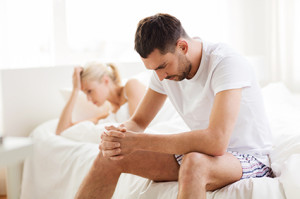 Erectile dysfunction is a common problem that affects many men. This being said, it is important to explore its causes and how it can be addressed. Because of testosterone’s prominence in men’s sexual function, it has been explored as a determining factor in erectile dysfunction. The following study describes how erectile dysfunction and low libido may be related to available testosterone in the body. It also examines how supplementing this testosterone deficiency may provide a better for you.
Erectile dysfunction is a common problem that affects many men. This being said, it is important to explore its causes and how it can be addressed. Because of testosterone’s prominence in men’s sexual function, it has been explored as a determining factor in erectile dysfunction. The following study describes how erectile dysfunction and low libido may be related to available testosterone in the body. It also examines how supplementing this testosterone deficiency may provide a better for you.
Different Types of Testosterone for Erectile Dysfunction
Many do not know that there are different types of testosterone in the body and that it is important to take note of their individual levels within a person’s system. The testosterone level measured when men go to the doctor is typically limited only to Total Testosterone. Patients only get the sum of unbound and bound testosterone present in the patient’s system.
The problem with this that the total amount of testosterone measured is not always fully available for use. Because of the presence of bound and unbound testosterone in the system, the Total Testosterone measurement for a person may not equal the precise amount of testosterone he is actually able to utilize. This is called Free Testosterone.
This is because bound and unbound testosterone are indicators of whether or not a testosterone can be immediately used by the body this Free Testosterone is a more important measure. A bound testosterone is one attached to proteins that need prior removal before it can be used, thereby needing some effort to be utilized. One of the proteins that binds to testosterones is albumin. While albumin does attach to testosterones, it is easily removed by the body when the testosterone is needed.
However, there are also particularly stubborn binding proteins that cannot be removed from the testosterone, thus rendering it unusable. An example of this is the Sex hormone binding globulin, or SBHG. Once SBHG attaches to your testosterone, it becomes unusable due to the difficulty of separating the protein from the testosterone, limiting the amount of available testosterone in the body.
The differences in functions and availability of these kinds of testosterone highlight the need to test for different types of testosterone. In studying testosterone levels in the system, it’s important to take into account the level of total testosterone, bio-available testosterone and free testosterone, along with the prevalence of SBHG proteins in the patients.
Free testosterone refers to unbound testosterones which are readily available to the body and thus, can be used with minimal effort. Bio-available testosterone, on the other hand, corresponds to both the free testosterones and testosterones bound to easily removed proteins such as albumin. SBHG limits the amount of Bio-available testosterone, giving a skewed amount of usable testosterone when analyzing the total count.
Erectile dysfunction’s relationship to your testosterone levels
Because of testosterone’s role as a primary sex hormone that establishes male traits and sex drive, research has been made to explore how testosterone levels and erectile function influence each other.
According to the study, there exists a proportional correlation between testosterone levels and erectile function, linking higher levels of the hormone with an increased sex drive and better erections. In addition to this, it also established that low testosterone levels was consistently present in cases of erectile dysfunction, and that low presence of the hormone may hamper erectile dysfunction medications such as Viagra from working properly.
Ultimately, the study concluded that a low amount of free testosterone coupled with high levels of SHBG posed the highest risk for erectile dysfunction in men, emphasizing the importance of monitoring testosterone levels when addressing the problem. Taking from the study, it goes that while there are many factors that can contribute to erectile function, it is useful to check testosterone levels because it was seen as a consistent influencing factor for erectile dysfunction as based on the data.
Because of testosterone’s effect on erectile dysfunction, aging men who are experiencing its symptoms are advised to first take a testosterone blood test that can measure the amount of total testosterone, free-testosterone and SHBG in their system. Because ultimately, it is free testosterone that determines the ready supply of the hormone in men, testing total testosterone may not provide sufficient information regarding one’s actual hormone levels. By testing all levels of testosterone, doctors may be able to determine if it is this deficit in available testosterone that hampers proper erectile function and sexual performance, providing the patient with better options of addressing the problem.
Hormone Therapeutics can help you learn more about testosterone
With the emergence of treatments for low testosterone levels today, you don’t have to bear its consequences anymore. This is why we have so many wives reaching out to us as well to find help for their loved one. Hormone Therapeutics can help you determine if low testosterone that is causing your sexual problems and provide testosterone replacement therapy, to remedy your concerns. We can treat with testosterone therapy, and/or erectile dysfunction treatments.
If you want to learn more about how to monitor your testosterone levels or fix low testosterone concentration and its consequences, our company can help you clear up your reservations. Give us a call and we’ll be happy to assist you as you take your first step towards improving your quality of life.
Linking Erectile Dysfunction and Low Testosterone
Saleamp Design April 5th, 2016
Posted In: Low T Info
Tags: albumin, Cialis, depression, ED, erectile dysfunction, erection, fatigue, free testosterone, impotence, libido, low libido, low t, low testosterone, sex, sexual function, SHGB, testosterone, Total Testosterone, Viagra
DHEA Benefits and Frontiers
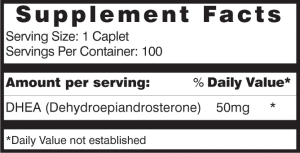 Dehydroepiandrosterone (DHEA) is a naturally occurring hormone produced in the body. Secreted by the adrenal glands, it is precursor to other hormones and is transformed by the body into specific hormones once it reaches the target tissue. As a prohormone, most of it effects are related to its end products as opposed to DHEA itself.
Dehydroepiandrosterone (DHEA) is a naturally occurring hormone produced in the body. Secreted by the adrenal glands, it is precursor to other hormones and is transformed by the body into specific hormones once it reaches the target tissue. As a prohormone, most of it effects are related to its end products as opposed to DHEA itself.
DHEA is gaining traction as an anti-aging supplement. It is also being explored as a treatment for several of the health conditions associated with aging.
DHEA and its effects
DHEA is often touted as a “youth restoring” hormone because of its reputation for slowing down the age process, improving general energy levels and cognitive skills. Because of this, many see it as a solution to regulate the side effects of aging and hormone depletion.
DHEA supplementation has shown an increase in energy, cognitive concentration, greater muscle mass/retention and slowing down the progression of Alzheimer disease. DHEA has been shown to have an influence on erectile dysfunction and lack of sex drive. In addition, Men with low DHEA more often experience depression as well as higher risks for overall mortality, including heart failure and cardiovascular threats.
DHEA Decline with Age
Unfortunately, DHEA production declines as its importance increases. DHEA production reaches its highest point during the 20s, but as one grows older, the body’s DHEA production decreases, leaving as little as 20% of the healthy output by the time one reaches 70.
Since it is a precursor to other hormones, this decline leads to a corresponding effect in other hormones as well. Estrogen and testosterone synthesis, in particular, wane once the DHEA levels decrease. This brings forth several consequences for both sexes. In men, specifically, age-related DHEA decrease leads to a decline in testosterone secretion. This decline is compounded because of the larger role DHEA plays in the production of testosterone as we age.
DHEA Supplements and their Effects
From trials, DHEA supplements have been shown to increase muscle mass, strength and physical well-being in general. In addition, tests of increased concentration, in men and women, have been shown to improve sexual potency and mood, with women experiencing less menopausal symptoms after taking supplements. Overall, DHEA has been seen as an anti-aging supplement, providing bone and muscle strength, better moods and immune system and increased memory.
When tested on patients with diabetes and neurological disorders, DHEA was not seen to improve erectile function and potency in patients. It has also been shown to exhibit minimal side effects such as mild acne, swollen ankles and increased facial hair in some women.
The effect of long term treatment on cardiovascular conditions and hormone-dependent tumors has not yet been studied, or have yielded conclusive results.
DHEA Frontiers
DHEA supplements for anti-aging purposes are currently gaining traction. As a precursory hormone, it is seen by many as a way to regulate hormone balance within the body. In addition, DHEA’s reputation in increased bone and muscle strength, as well as energy, has many physicians exploring DHEA supplements and its effect on bone growth, depression, and other mood and cognitive disorders.
Hormone Therapeutics
Hormone Therapeutics specializes in endocrine and hormone-related treatment, and is committed to finding the best treatment for your well-being. If you’re curious about how DHEA supplements can improve you and your life, Hormone Therapeutics can provide the answers for you. Call us today!
Do You Need Help?
Hormone Therapeutics is the leading national company assisting men who want to get their lives back through Hormone Replacement and Testosterone Replacement therapy. Our local physicians are ready to treat you anywhere in the entire country. Hormone Therapeutics is pioneering an easier, cost efficient and more private way for you to work with our clinical advisors and physicians from the privacy of your home or office after your local physical exam confirms you have one of the symptoms of Low T.
Contact us today and our clinical advisors will work with you on a hormone therapy program that may include prescribed hormones, exercise, nutrition and sleep programs to reclaim your vitality.
DHEA Benefits and Frontiers
Saleamp Design April 1st, 2016
Posted In: Health & Wellness
Tags: brain, brain fog, cardiovascular issues, Cialis, Dehydroepiandrosterone, depression, DHEA, ED, energy, erectile dysfunction, fatigue, hair loss, happiness, heart attack, low t, low testosterone, memory, muscle loss, muscle mass, sadness, sex drive, sexual function, stroke, supplements, testosterone, Viagra
Revealed: How Testosterone Converts to Estrogen to Battle Depression
 A recent study at the George Washington University, found that men diagnosed with borderline low testosterone levels had much higher rates of experiencing depression and depressive symptoms compared to the general population. In the study, 56% of the male participants were diagnosed with depression while 25% were already taking medications for this.
A recent study at the George Washington University, found that men diagnosed with borderline low testosterone levels had much higher rates of experiencing depression and depressive symptoms compared to the general population. In the study, 56% of the male participants were diagnosed with depression while 25% were already taking medications for this.
Produced in the testicles, testosterone helps drive a man’s production of sperm, muscle strength and mass, sex drive, facial and body hair and bone density. Men who don’t produce the normal amount of testosterone may have a condition called hypogonadism.
To Ward off Depression, Testosterone Converts to Estrogen
Testosterone, the male sex hormone, seems to have anti-depressant like properties, yet the exact mechanism of its effect still remained unclear.
In 2012, Mohammed Kabbaj and Nicole Carrier, both researchers at the Florida State University College of Medicine, are working to elucidate such mechanisms. They have found out that a particular pathway called MAPK pathway in the hippocampal region, a part of the brain, involved in regulation of stress responses and memory formation, plays a vital role in mediating the effect of testosterone.
Low Testosterone and Depression
Between men and women, females are typically more prone to suffer from depression, however, men diagnosed with low T or hypogonadism are also predisposed to depression or anxiety. Fortunately, hormone replacement therapy has been found to effectively enhance mood.
While it may seem that much is already known, it’s still very important to fully understand where and how these effects are happening so that scientists can develop better, targeted antidepressant therapies.
In the study, Kabbaj performed several experiments in neutered male rats and found that the rats manifested depressive-like behaviors that were then reversed by supplemental testosterone replacement.
According to the researcher, in order to protect males with hypogonadism from developing depression, testosterone in the brain must be converted to estrogen. Kabbaj stated a certain brain enzyme ‘mediates’ the conversion of testosterone to estrogen. Furthermore, inhibiting such enzyme in the hippocampal area has prevented the antidepressant effect of testosterone. This makes the conversion to estrogen vital.
In this study, the antidepressant effect of supplementing low testosterone to normal levels has only manifested in male rats, not in female rats.
Do You Need Help?
Hormone Therapeutics is the leading national company assisting men who want to get their lives back through Hormone Replacement and Testosterone Replacement therapy. Our local physicians are ready to treat you anywhere in the entire country. Hormone Therapeutics is pioneering an easier, cost efficient and more private way for you to work with our clinical advisors and physicians from the privacy of your home or office after your local physical exam confirms you have one of the symptoms of Low T.
Contact us today and our clinical advisors will work with you on a hormone therapy program that may include prescribed hormones, exercise, nutrition and sleep programs to reclaim your vitality.
Revealed: How Testosterone Converts to Estrogen to Battle Depression
Saleamp Design March 29th, 2016
Posted In: Low T Info
Tags: antidepressant, bone density, depression, hair loss, hormone replacement therapy, hypogonadism, low t, muscle strength and mass, sadness, sex drive, sex hormone, sperm, testosterone, testosterone levels


 When we talk about testosterone myths, this topic has its share of a bad rap as the “aggression” hormone that’s somehow the “root cause” of at least the majority of male-dominated social violence. While the absolutely invaluable evolutionary necessity of testosterone, along with its many evident positive effects, is indeed a primarily male-driven hormone that affects men in many of the ways we’ve previously discussed, it’s completely backwards logic to “blame” testosterone for the complex problem of societal violence (or the lack thereof for any absence of same).
When we talk about testosterone myths, this topic has its share of a bad rap as the “aggression” hormone that’s somehow the “root cause” of at least the majority of male-dominated social violence. While the absolutely invaluable evolutionary necessity of testosterone, along with its many evident positive effects, is indeed a primarily male-driven hormone that affects men in many of the ways we’ve previously discussed, it’s completely backwards logic to “blame” testosterone for the complex problem of societal violence (or the lack thereof for any absence of same). Testosterone Myths #1: Testosterone Increases Lead to Prostate Cancer
Testosterone Myths #1: Testosterone Increases Lead to Prostate Cancer Testosterone Myths #2: Increased Testosterone Leads to Violent Behavior
Testosterone Myths #2: Increased Testosterone Leads to Violent Behavior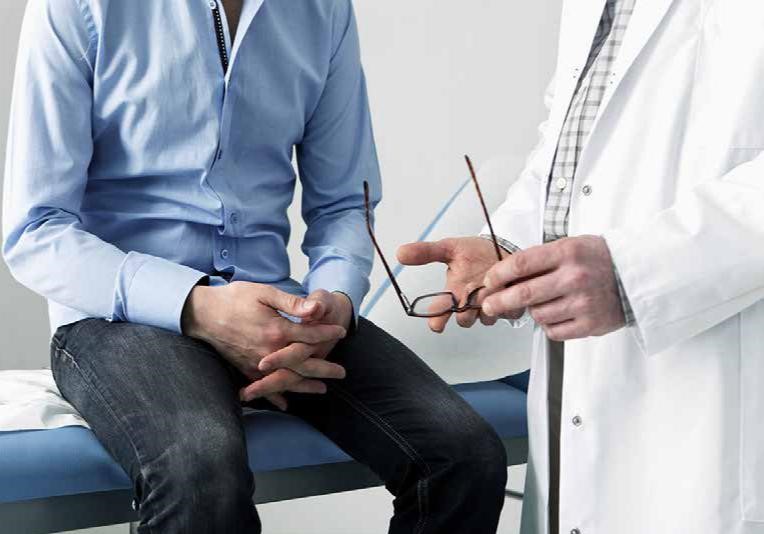 Testosterone Myths #3: Any Testosterone Increase Will Create Personal Social Conflict
Testosterone Myths #3: Any Testosterone Increase Will Create Personal Social Conflict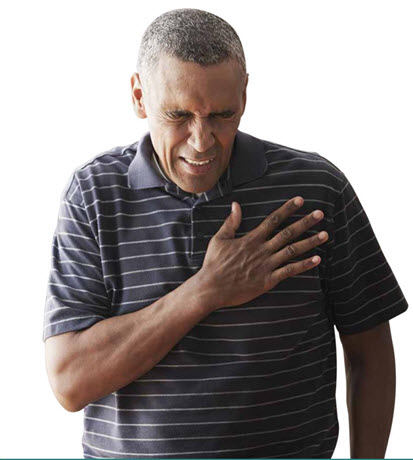 Testosterone Myths #4: Testosterone Treatment increases Cardiovascular Risk
Testosterone Myths #4: Testosterone Treatment increases Cardiovascular Risk
